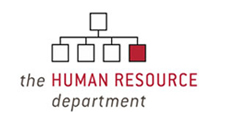10 Tips for Ensuring Compliance, 8 Tips for Selecting an AAP Vendor
It sure seems like we're running on empty. Jobs are in short supply. So are small business loans. And what about the funding for the "Cash for Clunkers" program?
But there's been no shortage of change since the Obama administration took office. And the change has filtered down to the OFCCP (Office of Federal Contract Compliance Programs), the agency that oversees compliance with Affirmative Action regulations.
The new administration has proposed a 33% increase in the OFCCP's 2010 budget. This provides for an increase in agency staffing, and consequently, an increase in the number of audits and complaint investigations.
Under its new Active Case Management program, a full "desk audit" (conducted at the OFCCP regional office) will be conducted for every 25 audits, and an on-site review (at the contractor site) for every 50 audits. The focus of the audits is to eliminate "systemic discrimination" (evidence of on-going pattern and practice), with emphasis on discrimination in compensation practices as well as selection, promotion and termination activity.
There is also an emphasis on review of contractor practices with respect to veterans and individuals with disabilities, including efforts in outreach to these groups and job-posting practices.
A new directive has also been issued by the OFCCP for audit of contractors receiving funds under the new American Recovery and Reinvestment Act of 2009 (ARRA).
These directives and increases in budget mean that federal contractors must ensure that they are fully compliant with all of the federal workplace laws enforced by the U.S. Department of Labor. This includes Affirmative Action, I-9, eVerify (mandatory electronic check of employee eligibility to work in the U.S., effective 9.8.09) regulations and prevailing wage and overtime pay regulations. An ounce of prevention will be worth a ton of cure.
10 Tips for Ensuring Compliance
But there's been no shortage of change since the Obama administration took office. And the change has filtered down to the OFCCP (Office of Federal Contract Compliance Programs), the agency that oversees compliance with Affirmative Action regulations.
The new administration has proposed a 33% increase in the OFCCP's 2010 budget. This provides for an increase in agency staffing, and consequently, an increase in the number of audits and complaint investigations.
Under its new Active Case Management program, a full "desk audit" (conducted at the OFCCP regional office) will be conducted for every 25 audits, and an on-site review (at the contractor site) for every 50 audits. The focus of the audits is to eliminate "systemic discrimination" (evidence of on-going pattern and practice), with emphasis on discrimination in compensation practices as well as selection, promotion and termination activity.
There is also an emphasis on review of contractor practices with respect to veterans and individuals with disabilities, including efforts in outreach to these groups and job-posting practices.
A new directive has also been issued by the OFCCP for audit of contractors receiving funds under the new American Recovery and Reinvestment Act of 2009 (ARRA).
These directives and increases in budget mean that federal contractors must ensure that they are fully compliant with all of the federal workplace laws enforced by the U.S. Department of Labor. This includes Affirmative Action, I-9, eVerify (mandatory electronic check of employee eligibility to work in the U.S., effective 9.8.09) regulations and prevailing wage and overtime pay regulations. An ounce of prevention will be worth a ton of cure.
10 Tips for Ensuring Compliance
- Review sourcing for female and minority candidates for areas of underrepresentation in your workforce.
- Review outreach activities to veterans and individuals with disabilities.
- Make sure your applicant tracking and record keeping procedures are compliant for sufficiency of applicant flow, an adequate and effective self-identification process, and recording of disposition of applicants (i.e. interviewed, refused offer, did not show up for interview, not minimally qualified, etc.).
- Ensure that pay plans are non-discriminatory and that any significant differences in average pay are not due to race/gender.
- Provide adequate access to your application process for individuals with disabilities, especially to web-based application systems, as well as to company facilities/programs.
- Maintain and update employee information in your HRIS to make sure that the data used as the basis for the AAP is current and accurate.
- Conduct mid-year plan reviews to gauge progress towards the goals and other action plans set for the plan year.
- Determine the non-discriminatory reasons for any adverse impact identified in employment activity and revise practices/policies as necessary.
- Communicate and implement the action plans included in the AAP narrative, and train supervisors/managers as needed.
- Keep records for two years (one year if under 150 employees).
8 Tips for Selecting an AAP Vendor
The regulatory requirements are complex and the potential costs of non-compliance are high. If you choose to hire outside help for preparing your AAP, consider the following:
- Will the vendor provide support to you throughout the year, including support during an OFCCP audit?
- Does the vendor consider this to be a full plan-year relationship?
- Are optional services provided, such as EEO-1 and VETS-100A preparation?
- How qualified is the staff that provides the services?
- Do they have proven track record and solid references?
- Will the vendor provide periodic updates for changes in regulations and procedures?
- What do the deliverables look like?
- Does the vendor provide management level reporting (i.e. executive summary)?
Need help? Contact us for more information on our compliance services.
Labels: AAP, Compliance Services, OFFCCP, The Human Resource Department


